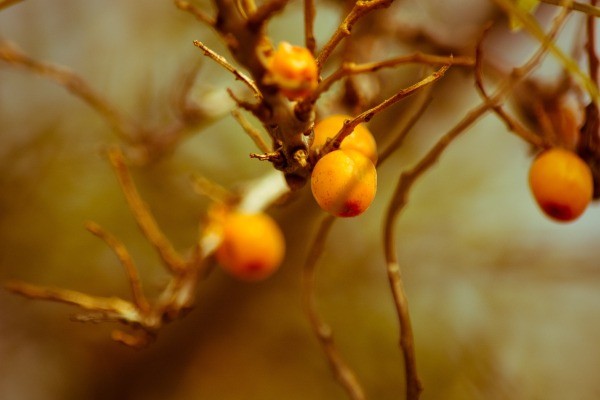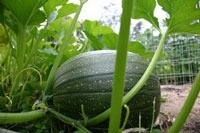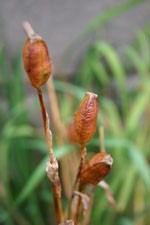As summer turns to autumn, it's time to take stock of this year's growing season and start shifting our focus to prepping the garden for fall. Here is a to-do list of seasonal chores for the lawn and garden:
As temperatures begin to cool and grass growth starts to slow, it's easy to back off on watering the garden. Sending your plants, trees and shrubs into the winter season thoroughly hydrated, however, helps protect them over winter and will give them a good start to next year's growing season.
Compost fallen leaves and remove and compost annuals that have gone past season. Wait a few weeks to cut back perennials. Dried stalks give gardens visual interest and seeds may provide food for migrating birds. Remove dead foliage and leaf litter now to eliminate potential winter hiding spots for hibernating insects. Make sure to throw diseased plants in the trash, not the compost pile.
Plentiful rains make early fall a great time to aerate the lawn and over-seed any problem spots discovered during the summer. In the fall, grass plants focus their energy into root growth. If necessary, apply a slow release fertilizer now to increase the likelihood that nutrients will be used for root growth. Good strong roots are the best way to stimulate and support vigorous leaf growth in the spring.

Sending your plants, trees and shrubs into the winter season thoroughly hydrated, however, helps protect them over winter and will give them a good start to next year's growing season.
Till up and prepare the soil for any new beds that you want ready next spring. Turning over the soil now exposes insect pupae and eggs to birds and will allow the freezing and thawing action of winter to break up the soil.
Fall is a great time to amend your soil because amendments have all winter to break down and work their way into the soil. Testing labs are dramatically less busy in the fall so your test results are likely to be returned much faster-probably in time to add any recommended amendments before winter.
Save the best of this year to plant next year. Collect seeds from the juiciest tomatoes, the showiest blooms and the sweetest sugar snap peas. Store dry seeds and pods in airtight containers in a cool, dark place.
Divide and transplant overgrown perennials to fill in gaps throughout the garden. Plant mums and other fall blooms and prepare to dig up dahlias, cannas, gladioli and other non-hardy bulbs after the first frost. Sow cover crops now to improve soil fertility, prevent erosion, improve soil structure and provide ready-made compost for next spring.
Buy and plant spring-blooming bulbs while there is a good selection and take advantage of end of season sales for tools, seeds and planters.

Collect seeds from the juiciest tomatoes, the showiest blooms and the sweetest sugar snap peas. Store dry seeds and pods in airtight containers in a cool, dark place.
If you don't have one, get yourself a garden journal and make notes about this year's plantings-what worked and what didn't work. Take pictures and write down any changes you want to make and thoughts you have about next year's garden.
Mark your root crops with stakes now so you don't have to dig to find them once it snows. Cover them with mulch when the tops die back.
The first frost doesn't need to signal the end of the season. Protect plants from frost with old sheets and blankets, cold frames, or row-cover tunnels. Frost is likely on clear, starry nights when the air is dry (no condensation on car windows) and the temperature is 45°F or colder by 10 P.M.
Take time to make a list of all the tools and supplies you need to replace for next season and shop to take advantage of end of season sales. Clean up dirty tools with water and a wire brush and coat them with vegetable oil to prevent rust before putting them away for winter. When you're finished watering for the season, drain hoses, nozzles and sprinklers for storage.
Review is always good and needed for older people. Enjoyed it.
This page contains the following solutions.
Tips to prepare your garden for the fall and winter from the ThriftyFun community. Right now we are just concentrating on getting as much of the garden produce in the house as possible. Frost threatens tonight!